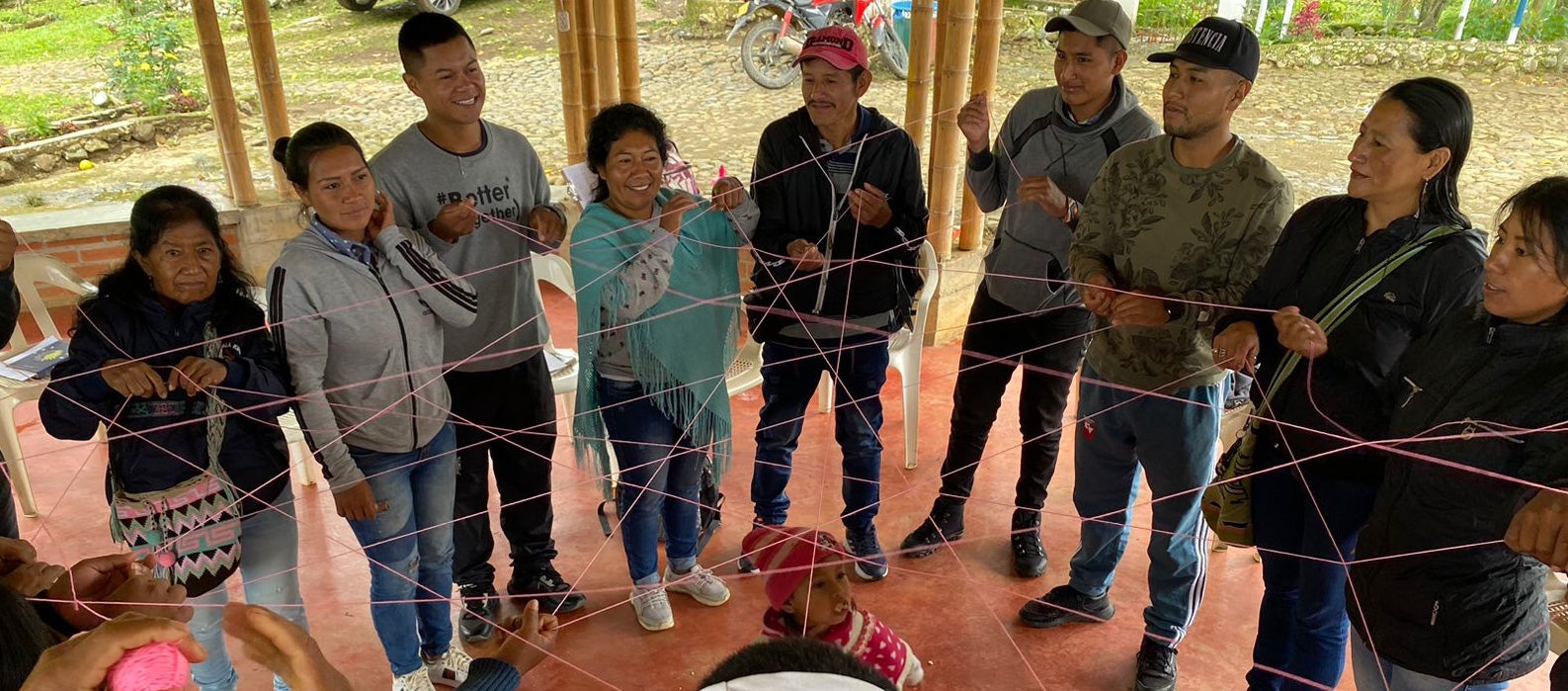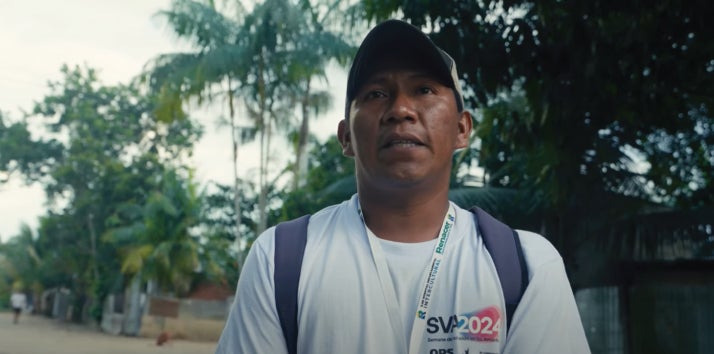
A workshop to determine Indigenous perceptions of COVID-19 was held in the Naza community in Colombia's Cauca Department.
Bogotá, Colombia, 28 May 2024 (PAHO) – A study undertaken by the Pan American Health Organization (PAHO) to clarify Indigenous perceptions of COVID-19 vaccines in Colombia demonstrates the need for communications strategies that respect cultural diversity and traditions, including medical practices and knowledge of medicinal plants.
“The study will go a long way toward helping public health agencies communicate more effectively and persuasively about COVID-19 vaccination with Indigenous communities,” said Dr. Ciro Ugarte, Director of Health Emergencies for PAHO. “Ultimately, this insight will serve to overcome the vaccine hesitancy that has been prevalent in some Indigenous communities.”
The study of the attitudes and perceptions of Indigenous groups in five departments in Colombia collected important, first-hand evidence through 61 interviews and 12 workshops that drew the participation of 240 community members. The study was funded by the Canadian Government under a grant aimed at improving COVID-19 and routine vaccination rates in Latin American and Caribbean countries, particularly among vulnerable populations such as Indigenous people and women and girls.
As part of the 2024 Vaccination Week in the Americas, PAHO supported campaigns to bring vaccination and other health services to Indigenous communities in Colombia, including residents of the town of Inírida, Guainia.
The study analyzed perceptions in the Uitoto, Tikuna, Nasa, Misak, Emberá, Wounnan, Kankuamo, Wiwa, Awá and Epedara Siapidara communities. The results indicate that along with respecting the cosmovision and traditions of Indigenous people, communications strategies should incorporate the participation of Indigenous leaders.
The study demonstrated the need for consideration of Indigenous communities’ spirituality and connection to nature, and for incorporating ancestral knowledge and the concept of balance in health. It emphasized that the strengths of ancestral health systems should be recognized, while cross-cultural dialogues are needed to achieve effective harmonization with western health systems. It also highlighted that the use of Indigenous communities’ radio stations and social networks should be favored to disseminate messages about vaccination.
“The study was aimed at identifying the views of each community in order to establish communication strategies that promote an open and fluid dialogue and ultimately greater acceptance of COVID-19 vaccination,” Dr. Ugarte said.
Vaccination against COVID-19 began in February 2021 in Colombia, and more than 90 million doses were administered by January 2023. However, among Indigenous people, vaccination coverage reached only 50% of the population due largely to cultural factors, limited access to information and distrust in health institutions. Colombia has intensified efforts to increase vaccination coverage among Indigenous communities, including through campaigns to remote, Indigenous regions as part of the 2024 Vaccination Week in the Americas.
“We are working hand-in-hand with territories to reach the most remote municipalities, Indigenous communities, Afro-descendant populations and various ethnicities, bringing them vaccines and other services to protect their health and well-being,” Dr. Gina Tambini, PAHO Representative to Colombia, said during a vaccination campaign in Puerto Inírida, Guainia, near the border with Brazil and Venezuela.
“Some communities and ethnicities don’t understand about vaccines. But little by little, people get their children vaccinated so they are protected against disease,” explained Hugo Días, a vaccinator from Hospital Inírida.
Increasing equitable access to vaccination and other essential health services in the Americas remains one of PAHO’s key priorities in a Region that continues to be ranked among the world’s most inequitable.
In response to global calls for support to enhance vaccine roll-out in early 2022, Canada launched Canada’s Global Initiative for Vaccine Equity (CanGIVE) to bolster COVID-19 vaccine delivery, strengthen health systems and increase regional vaccine manufacturing capacity. Through CanGIVE, Canada supports vaccination where vaccination coverage remains low, particularly in humanitarian contexts and hard-to-reach places.





